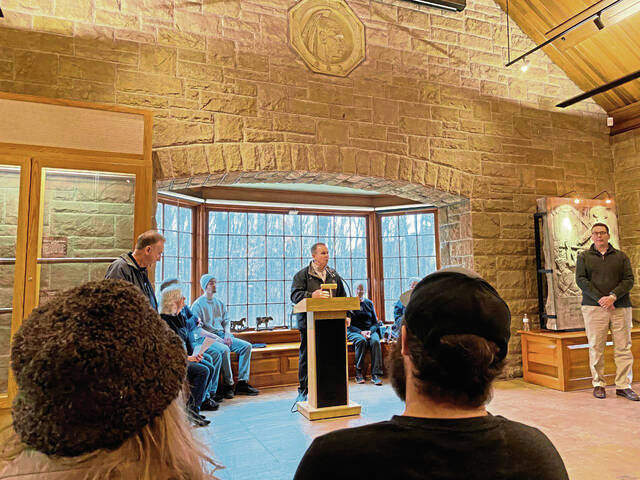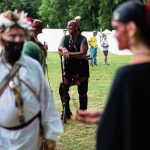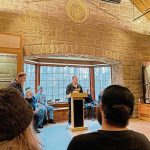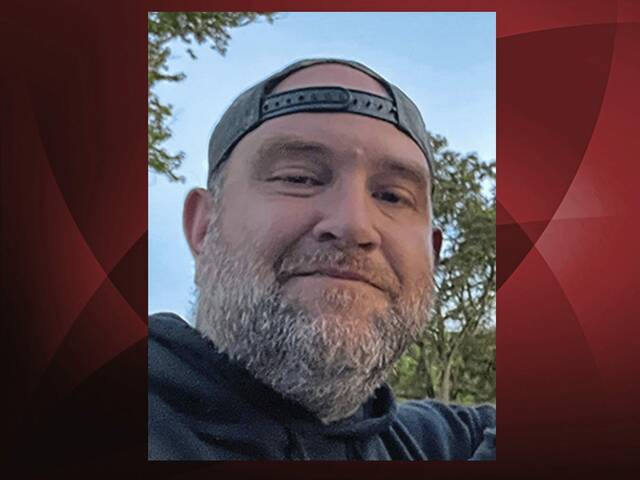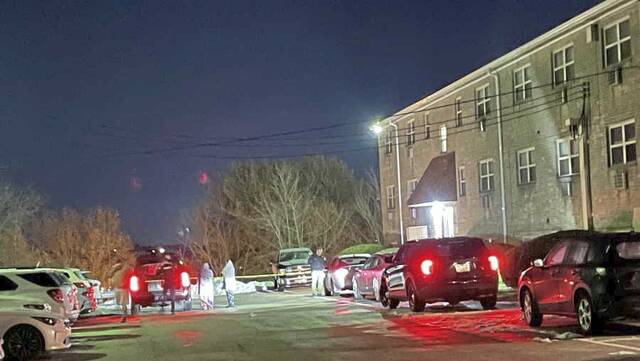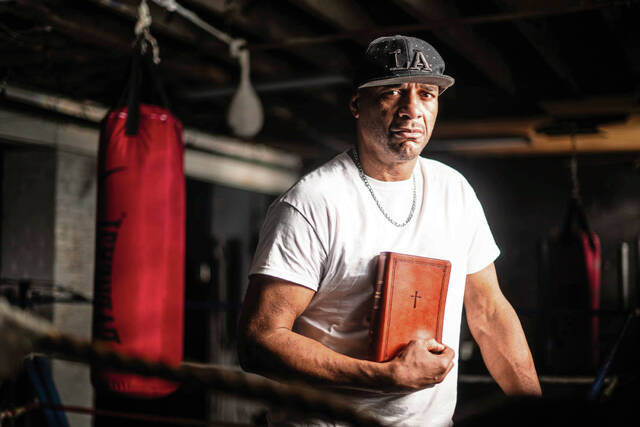In Rob Malley’s opinion, Bushy Run is experiencing its third battle.
The first battle occurred in August 1763 between the British and Native Americans during Pontiac’s War. The second happened in 2009, when the Pennsylvania Historical and Museum Commission threatened to close the historical Penn Township park that memorializes the battle.
Now, Bushy Run faces yet another battle, as the state commission has enacted new guidelines that bar the Bushy Run Battlefield Heritage Society from hosting its annual battle reenactment, the park’s biggest fundraiser that draws dozens of historical reenactors and thousands of observers.
“This is the Battle of Bushy Run No. 3,” said Malley, who sits on the historical society’s board.
Malley and other historical society directors briefed the public on the new regulations and the park’s future during a meeting at the park Sunday afternoon.
About 70 people — including park volunteers, elected officials and concerned community members — attended the often-emotional meeting that included frequent cheering and occasional tears. No one at the meeting spoke in favor of the new state regulations.
“To take it away, it’s a shame,” said Penn Township resident Kenny Benson, who grew up a mile from the park. “Everybody works so hard.”
Historical society directors found out that the state commission would enact a no force-on-force reenactment policy in mid-January. The commission also said that non-Native people can never portray Native Americans at the park.
The Sunday meeting began with historical society directors sharing the chain of events that led to the commission’s decisions.
Directors said the state commission attempted to cancel the 2022 battle reenactment a day before it was scheduled because park management did not consult appropriate Native groups. The directors declined to cancel the reenactment, in part because of the short notice.
After the August incident, Bushy Run directors said they requested to be part of further conversations with the state. While park directors were able to communicate with the state commission, they were prevented by the commission from contacting Native tribes about the reenactment.
In October, directors said, the commission told them the 260th reenactment would not be canceled.
Just three months later, however, in a meeting with the commission and Native tribe members, park directors learned about the two new regulations.
“Based on the discussion, we concluded that (the commission) and the Indians had come to prior agreement on both of these directives,” Malley said.
If the regulations stand, the park must find new ways to commemorate the battle. Volunteers are already brainstorming new ideas.
After the timeline was shared, the floor was open for attendees to share their opinions and ideas. Many expressed hope that the commission’s decision would be overturned, including state Rep. George Dunbar, who described the situation as “unelected bureaucrats making decisions without consulting anyone.”
Dunbar was accompanied by state Reps. Eric Nelson and Parke Wentling. Wentling sits on the state commission’s board and did not publicly comment on the incident.
Penn Township Commissioner Chuck Konkus also attended, promising that he would fight to bring the reenactment back.
Konkus blamed the incident on the “woke, liberal culture.”
“They’ve disgraced the dead bodies of the Indians who fought here and the British who fought here and gave their lives,” Konkus said.
A tribal elder in the Seneca Nation of Indians also phoned into the meeting to express his support for the park and history. A private individual had reached out to the elder.
Jim Comunale, a park tour guide who served as a safety officer during the battle reenactment, was “very pleased” by the number of people who attended the meeting.
“We believe in history,” Comunale said. “Whether anyone likes it or not, there was a battle that happened here.”
Dan Balzarini, Tom Klingensmith and Scott Henry — reenactors with Proctor’s Militia — called the situation “personal” since many Proctor’s Militia members have ancestors who fought in battles like Bushy Run.
Proctor’s Militia, which is based in Western Pennsylvania, travels to other states for reenactments and living history events. The men expressed hope that the state will change its mind on the Bushy Run reenactment, as they believe reenactments like this are important tools to preserve history.
“This country wasn’t built just by Daniel Boone and George Washington,” said Henry of Greensburg. “Everybody who fought here, they deserve to be remembered, too.”



